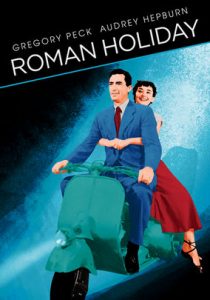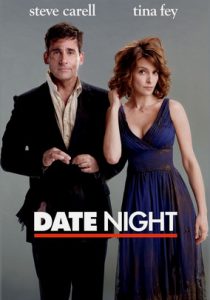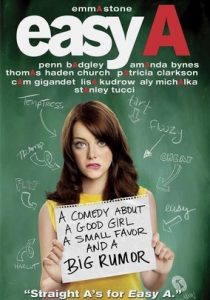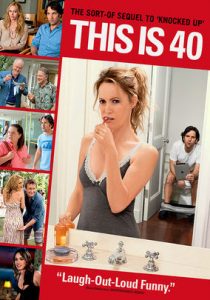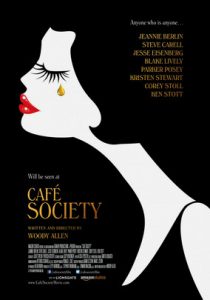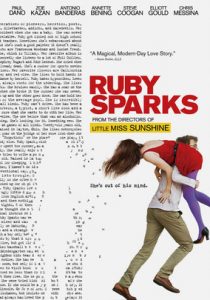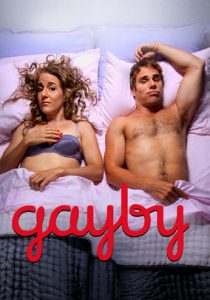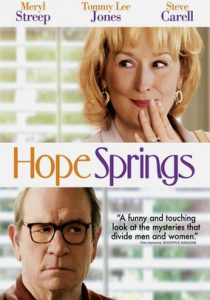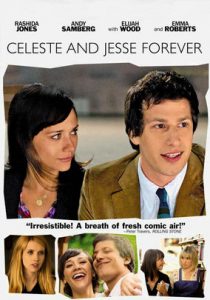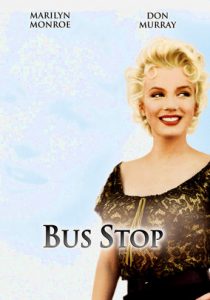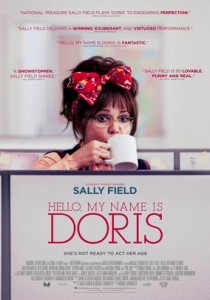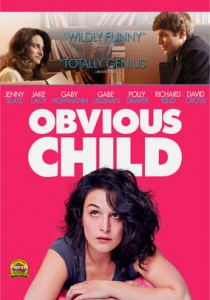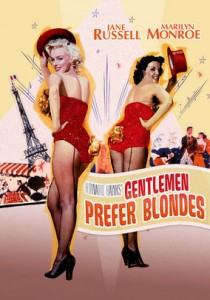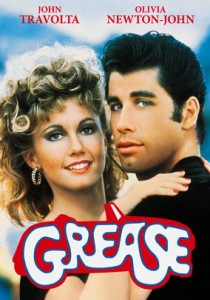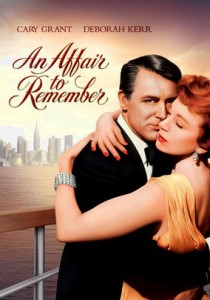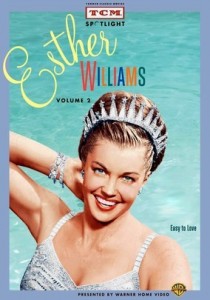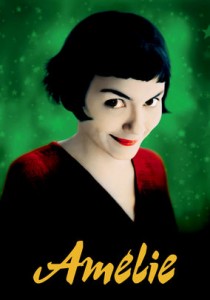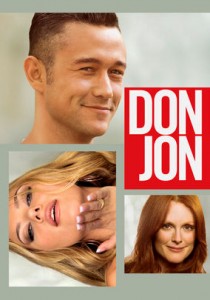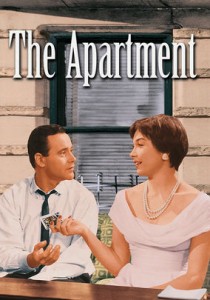Roman Holiday-1953
Director William Wyler
Starring Gregory Peck, Audrey Hepburn
Scott’s Review #694
Reviewed October 26, 2017
Grade: B+
Roman Holiday, released in 1953, was a box office hit, pleasing legions of fans at the time, in addition to being a critical darling.
The film reaped a series of Academy Award nominations including the coveted Best Actress statuette for a young Audrey Hepburn.
A happy, uplifting story, the film is not diminished by Cinderella in the reverse storyline but rather is a charming, romantic experience immersing itself in pleasing locales of the cultural city of Rome.
Admittedly, Roman Holiday is an example of a film in which I preferred the latter half to the former but succeeds in setting the bar high in the romantic comedy genre.
Our heroine, Princess Ann (Hepburn), has it all glamorous life, gorgeous clothes, and assistants tending to her every need and want. However, she is unhappy and trapped in a rigid life that lacks freedoms or decisions of any kind, to say nothing of the fun she catches glimpses of party-goers reveling in each night from her expansive palace window.
Simply put, she is lonely and unfulfilled.
When she sees an opportunity to escape her life for a night of fun, she snatches it and stumbles upon an American reporter, Joe Bradley (Peck). The two, despite differing backgrounds, fall madly in love with one another.
At first, I found something missing in the film and the chemistry between Peck and Hepburn did not immediately embrace me. As the duo meets, Ann, drunk from sleeping pills, and Joe being the ultimate nice guy and allowing her to sleep in his apartment, the story seems somewhat lagging and lacking a good punch.
The pair drive around the city of Rome on a scooter and act childish and silly, Ann acting girlish because fun is an entirely new concept to her. At this point, the film was reasonable but little more than a farce.
As Roman Holiday plugs along, and especially through the final act, the film sheds a bit of its light skin and becomes much more poignant and meaningful.
Ann and Joe, while in love, realize they will not and cannot embark on a fairy tale ending, which truthfully, would have made Roman Holiday little more than a standard romantic comedy we have all seen before- you know the type- boy meets girl, roadblocks persist, boy whisks girl away and rides off into the sunset together.
Roman Holiday, while not a dark film, goes much deeper than a transparent, predictable ending.
Related to this point is that Roman Holiday contains a realness that sets it apart from many films undoubtedly drawn from it, but unlike this film, leans into contrived or predictable situations.
As Joe and Ann fall in love, the audience falls in love with them. The main plot hurdle- Joe’s temptation to profit off of Ann once he realizes her true identity by way of a sought-after interview- is earnestly done with a lack of any pretension.
Other similar films ought to take note of this.
Certainly, the historic and culturally relevant locales of Rome are a major sell of the film and, if these scenes were shot on a movie set, a lack of authenticity would surely have emerged.
Instead, we are treated to such fabulous location sequences as the Colosseum, the Tiber River, the Trevi Fountain, and Piazza Venezia. Such a delight is the long sequence of Roman escapades as Joe and Ann traverse the city in giddy bliss.
Enjoyable is how Roman Holiday contains no real villain of any sort.
Nowhere to be found are any physical hurdles to the duo’s relationship- no outside forces plotting to keep Joe and Ann apart, other than merely their lifestyles. Ann is in a world of royalty and pampering, but Joe is an everyman, so the chances of living happily ever after are slim to none.
Film lovers intent on discovering one of the early romantic comedies- one could argue that It Happened One Night (1934) was the first- ought to watch a feel-good, Hollywood classic from 1953 that is rich in honesty, good humor, and raw emotion without being too much of a heavy melodrama.
After a middling start, the film finishes with gusto.
Oscar Nominations: 3 wins-Best Motion Picture, Best Director-William Wyler, Best Actress-Audrey Hepburn (won), Best Supporting Actor-Eddie Albert, Best Screenplay, Best Story (won), Best Art Direction, Black and White, Best Cinematography, Black and White, Best Costume Design, Black-and-White (won), Best Film Editing
